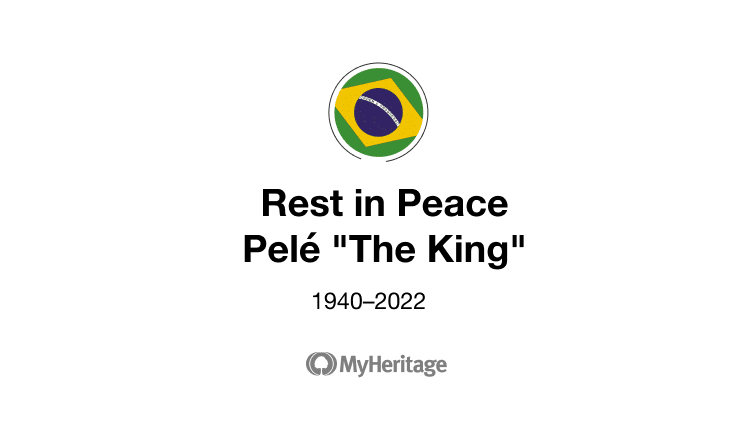

We are deeply saddened by the passing of one of the world’s most beloved and influential soccer players, Pelé. He was a pioneering figure who revolutionized Brazilian culture and brought joyous moments of celebration across generations of fans all around the world.
Born Edson Arantes do Nascimento on October 23, 1940, in Três Corações, Brazil, Pelé inherited his love of football from his father, who was a soccer player himself. His parents named him after Thomas Edison, but chose to remove the “i”; nonetheless, his name was listed incorrectly on his birth certificate including the “i,” and many documents show his name as “Edison” rather than “Edson.” Within the family, he was nicknamed “Dico,” but became known as Pelé during his school days because of the way he pronounced the name of his favorite player, Bilé.
As a child, he would often have to play with a sock stuffed with newspaper or a grapefruit because his family couldn’t afford a proper ball. He began playing local street tournaments as well as organized games with Santos FC, where he would eventually make his professional debut. From an early age, it was clear that Pelé had something special; his speed and skill were unparalleled and he quickly gained recognition for his ability. A common story goes that when Pelé was 9, he saw his father crying after Brazil’s unexpected loss to Uruguay in the famous World Cup final in 1950, and comforted his father, promising that one day, he would win the World Cup for Brazil.
He certainly fulfilled that promise. He went on to win three FIFA World Cup titles (1958, 1962, 1970) and was Brazil’s all-time leading goal scorer with 77 goals. Voted Football Player of the Century by FIFA in 2000, he held the Guinness World Record for number of goals scored in his career — a staggering 1,283 goals in 1,363 games. Pelé’s accomplishments in soccer earned him worldwide recognition and multiple awards throughout his lifetime. He was even knighted by Queen Elizabeth II, and when he met Ronald Reagan, the U.S. president famously introduced himself and then said that Pelé needed no introduction, because everyone knew who he was. Pelé was an international icon of sportsmanship, talent, and success. No wonder his name has become interchangeable with “king” or “queen” in Brazil, used as a term to express that someone is the best in their field.
Pele’s life off the pitch was just as impressive. He was devoted to social causes such as fighting poverty and racism. Pelé paved way for greater representation and opportunities for non-white players around the world that were previously unthinkable during this era. He used his fame to raise money for charities throughout the world, often donating his time and platform in support of those most in need.
Pelé’s death marks a devastating loss to Brazilian culture and to generations of fans around the world who admired him as an athlete and cultural figurehead. He will remain an inspirational figure for generations to come, and his legacy will live on through the thousands of lives he touched with his commitment to excellence on the field, compassion for others off it, and larger-than-life personality every day.
We mourn Pele’s passing and pay tribute to a legendary athlete whose achievements raised the bar of excellence in football. Rest in peace, King Pelé.









